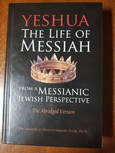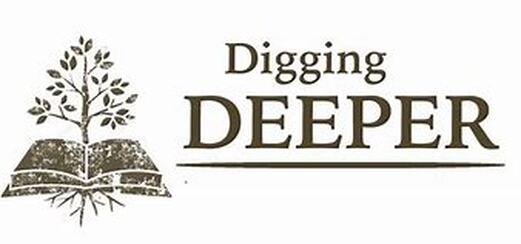What you will need on this journey.
A Bible - preferably one with footnotes and references.
A Bible - preferably one with footnotes and references.
- A NEW Notebook to take notes, make your own notes, list your questions, and a place to write any "ah ha" moments when a truth comes to you.
- A pen
- A highlighter pen (something that doesn't bleed on your bible's thin pages)
- A small note pad beside you (for those moments when something pops into your head that you need to do later.)
- Your Phone or anything that will disrupt your study (music, TV, etc.)

This study and much of the wording is QUOTED from Dr. Arnold Frutenbaum, (in quotes) a Messianic Jewish Professor, author, speaker and renown authority on all things Jewish From his book YESHUA, The Gospel from a Jewish Perspective
And also Ariel's Harmony of the Gospels by Dr. Arnold G. Fruchtenbaum
(See the Bibliography Page)
Purchase from www.ArielMinistries.com
And also Ariel's Harmony of the Gospels by Dr. Arnold G. Fruchtenbaum
(See the Bibliography Page)
Purchase from www.ArielMinistries.com
A Bit of Background before you start

The Synoptic Gospels
Definition of Synoptic = The gospels of Matthew, Mark, and Luke are referred to as the Synoptic Gospels because they include many of the same stories, often in a similar sequence and in similar wording.
TAKE NOTE
Matthew portrays Christ as King
Mark portrays Christ as the Servant
Luke portrays Christ as the Man
John portrays Christ as God
-------------------------------------------------------------
As you study the Gospels:
Remember when studying Scripture you must understand First Century Jewish Perspective. "The life of Jesus is played out in Jewish Culture-specifically the Jewish culture of the first Century Israel. "
____________________________________
The gospels focus on Jewish Context:
*Jewish idioms
*colloquialisms
*theological
*cultural
*policitcal
*geographic context
"You can approach your bible study from two ways:
as a Geographical approach or a Thematic approach
Geographical - where the focus is on WHERE Jesus did WHAT, rather than the reason or motivation for His actions and teaches.
It divides Jesus' life by various regions in which He acted such as "Greater Galilean Ministry" or the "later Judean Ministry.
The results of this focus is that the gospels are seen as a series of individual teachings and we fail to see the correlation between the various events and teachings of His life.
Whereas, the Thematic Approach has the gospels outlining an overall "theme" with each event relating to the next in a continuous stream of thought. Example: Jesus, the Messianic King is Matthew's theme.
The results: To see WHY Jesus does WHAT HE DOES, and WHY He teaches WHAT He teaches, seeing stories unfolding which will have a major turning point and a climax." (Dr. Arnold Frutenbaum)
_________________________________
The GOAL of this study is
1. to learn the Jewish context of the gospels
2. to recognize the overall "theme" of the Messiah's life, the turning point and its significance
3. understand the rules of interpretation which lead to learning sound doctrine.
______________________________________
"With the CORRECT understanding of the life of Jesus, Yeshua,
provides the foundation for our understanding of ALL Scripture." - Dr. Arnold Frutenbaum
_________________________________
2 Reasons for the differences between the gospels from Dr. Arnold Frutenbaum
1. " Each writer had to be selective in WHAT he wrote as John 21:25 says, "and so many other things Jesus did, which if they were written in detail, I suppose that even the world itself would not contain the books that would be written."
2. " Each writer had a different "audience" in mind and a "theme" that he wanted to develop that would relate to that audience. So the writer chose events and teachings relevant to his theme and audience."
Before you read a gospel write out what the
a. theme of the book is about
b. who the prime audience was
c. the backdrop/background of that time
d. what the emphasis the writer wants to make
EXAMPLE
Matthew (one of the 12 disciples)
Theme: Jesus, Yeshua, the Messiah-King of the Jews
Prime Audience: The Jewish believers of the dispersion (after church established)
Background - Roman Occupation in the Land
Emphasis: Kingly characteristics & actions
Purpose:
Initially believers could bring their questions to an apostle, but after the dispersion that followed Stephen's martyrdom in Acts 7, the Jewish believers needed an authoritative source for learning about the life of Jesus. Probably between 30-44 AD
___________________________________________________________________________
Please keep these things in mind as you read the gospels
FOR THE VISUAL LEARNER
Check out this cool documentary video about the Rapture of the Church and the Second Coming. You can rent it or purchase from Amazon. We highly recommend it. Before the Wrath, with comments by Amir Tsafarti, Jack Hibbs, J.D. Farah, and Jan Markell of Olive Tree Ministries.
Definition of Synoptic = The gospels of Matthew, Mark, and Luke are referred to as the Synoptic Gospels because they include many of the same stories, often in a similar sequence and in similar wording.
TAKE NOTE
Matthew portrays Christ as King
Mark portrays Christ as the Servant
Luke portrays Christ as the Man
John portrays Christ as God
-------------------------------------------------------------
As you study the Gospels:
Remember when studying Scripture you must understand First Century Jewish Perspective. "The life of Jesus is played out in Jewish Culture-specifically the Jewish culture of the first Century Israel. "
____________________________________
The gospels focus on Jewish Context:
*Jewish idioms
*colloquialisms
*theological
*cultural
*policitcal
*geographic context
"You can approach your bible study from two ways:
as a Geographical approach or a Thematic approach
Geographical - where the focus is on WHERE Jesus did WHAT, rather than the reason or motivation for His actions and teaches.
It divides Jesus' life by various regions in which He acted such as "Greater Galilean Ministry" or the "later Judean Ministry.
The results of this focus is that the gospels are seen as a series of individual teachings and we fail to see the correlation between the various events and teachings of His life.
Whereas, the Thematic Approach has the gospels outlining an overall "theme" with each event relating to the next in a continuous stream of thought. Example: Jesus, the Messianic King is Matthew's theme.
The results: To see WHY Jesus does WHAT HE DOES, and WHY He teaches WHAT He teaches, seeing stories unfolding which will have a major turning point and a climax." (Dr. Arnold Frutenbaum)
_________________________________
The GOAL of this study is
1. to learn the Jewish context of the gospels
2. to recognize the overall "theme" of the Messiah's life, the turning point and its significance
3. understand the rules of interpretation which lead to learning sound doctrine.
______________________________________
"With the CORRECT understanding of the life of Jesus, Yeshua,
provides the foundation for our understanding of ALL Scripture." - Dr. Arnold Frutenbaum
_________________________________
2 Reasons for the differences between the gospels from Dr. Arnold Frutenbaum
1. " Each writer had to be selective in WHAT he wrote as John 21:25 says, "and so many other things Jesus did, which if they were written in detail, I suppose that even the world itself would not contain the books that would be written."
2. " Each writer had a different "audience" in mind and a "theme" that he wanted to develop that would relate to that audience. So the writer chose events and teachings relevant to his theme and audience."
Before you read a gospel write out what the
a. theme of the book is about
b. who the prime audience was
c. the backdrop/background of that time
d. what the emphasis the writer wants to make
EXAMPLE
Matthew (one of the 12 disciples)
Theme: Jesus, Yeshua, the Messiah-King of the Jews
Prime Audience: The Jewish believers of the dispersion (after church established)
Background - Roman Occupation in the Land
Emphasis: Kingly characteristics & actions
Purpose:
Initially believers could bring their questions to an apostle, but after the dispersion that followed Stephen's martyrdom in Acts 7, the Jewish believers needed an authoritative source for learning about the life of Jesus. Probably between 30-44 AD
___________________________________________________________________________
Please keep these things in mind as you read the gospels
FOR THE VISUAL LEARNER
Check out this cool documentary video about the Rapture of the Church and the Second Coming. You can rent it or purchase from Amazon. We highly recommend it. Before the Wrath, with comments by Amir Tsafarti, Jack Hibbs, J.D. Farah, and Jan Markell of Olive Tree Ministries.
